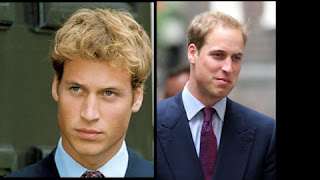The Endocrine System and Hair Growth
The Endocrine System and Its Impact on Hair Growth
The human body is an intricate network of systems that work harmoniously to maintain homeostasis, and among these systems, the endocrine system plays a crucial role. This complex network of glands produces and secretes hormones that regulate a multitude of physiological processes, including metabolism, growth, and even hair growth.
Let's explore the function of the endocrine system, its influence on hair growth, the relationship between hormones and hair loss, and the historical perspective of our understanding of these connections.
https://www.wikidoc.org/index.php/Endocrine_system
Understanding the Endocrine System
The endocrine system consists of various glands, including the pituitary, thyroid, adrenal glands, pancreas, and gonads (ovaries and testes), among others. These glands release hormones directly into the bloodstream, which then travel to organs and tissues, triggering specific responses. Hormones are vital for maintaining various bodily functions, such as:
- Metabolism Regulation: Hormones control how the body converts food into energy.
- Growth and Development: Hormones like growth hormone and sex hormones (estrogen and testosterone) regulate physical growth and sexual maturation.
- Homeostasis Maintenance: Hormones help regulate blood pressure, fluid balance, and temperature.
Given this diverse range of functions, it is clear that the endocrine system is pivotal to overall health, including the health of hair follicles.
The Connection Between Hormones and Hair Growth
Hair growth occurs in cycles, including the anagen (growth), catagen (transitional), and telogen (resting) phases. Hormones play a significant role in regulating these phases, particularly in relation to androgens (male hormones) and their effect on hair follicles. Here are some key hormones involved in hair growth:
Androgens: Testosterone and its derivative, dihydrotestosterone (DHT), are androgens that have a profound impact on hair growth. While they are essential for the development of male characteristics, they can also contribute to hair loss in both men and women. In conditions like androgenetic alopecia (male and female pattern baldness), hair follicles become sensitive to DHT, leading to miniaturization of hair and eventual hair loss.
Estrogens: In contrast to androgens, estrogens promote hair growth and extend the anagen phase. Women often experience increased hair growth during pregnancy due to elevated estrogen levels, which can also explain postpartum hair loss when hormone levels drop.
Thyroid Hormones: The thyroid gland produces hormones that regulate metabolism and energy levels. An imbalance in thyroid hormones (hypothyroidism or hyperthyroidism) can lead to hair thinning or loss, as these hormones are vital for maintaining healthy hair follicles.
Cortisol: Known as the stress hormone, cortisol is produced by the adrenal glands. Chronic stress can lead to elevated cortisol levels, which may disrupt the hair growth cycle, causing hair to enter the telogen phase prematurely.
Insulin: Insulin resistance, often associated with conditions like polycystic ovary syndrome (PCOS), can affect hormone levels and contribute to hair thinning or excessive hair growth (hirsutism) in women.
The Impact of Hormonal Imbalances on Hair Loss
Hormonal imbalances can significantly affect hair growth, leading to various forms of hair loss. Here are some common conditions associated with hormonal changes:
Androgenetic Alopecia: This hereditary condition affects both men and women, leading to gradual hair thinning and loss. In men, it often results in a receding hairline and bald spots, while in women, it typically presents as overall thinning.
Telogen Effluvium: This temporary condition can be triggered by stress, hormonal changes (such as pregnancy or menopause), or significant weight loss. It causes a large number of hair follicles to enter the telogen phase, leading to increased shedding.
Alopecia Areata: This autoimmune condition is characterized by sudden hair loss, often linked to hormonal changes and stress. The immune system attacks hair follicles, causing hair to fall out in patches.
Polycystic Ovary Syndrome (PCOS): Women with PCOS may experience hormonal imbalances, leading to hair thinning on the scalp and excessive hair growth on the face and body.
Historical Perspective: Discovering the Link Between Hormones and Hair Growth
The relationship between hormones and hair growth has been explored for many years, with significant advancements in our understanding over the decades.
Early Discoveries: The first documented observations of hair loss related to hormonal changes date back to the 19th century when researchers noted that certain forms of hair loss were more prevalent in men than women, leading to the hypothesis that male hormones played a role.
20th Century Advances: In the 1930s and 1940s, researchers began identifying specific hormones responsible for hair growth. The discovery of testosterone's role in hair loss and growth in men marked a pivotal moment in endocrinology and dermatology.
Modern Research: Since the late 20th century, extensive research has focused on understanding the hormonal mechanisms affecting hair follicles. The identification of the enzyme 5-alpha-reductase, responsible for converting testosterone to DHT, has paved the way for treatments targeting hair loss, such as finasteride.
The endocrine system plays a crucial role in hair growth and loss, with hormones influencing every aspect of the hair growth cycle. Imbalances in hormones, whether due to genetics, stress, or medical conditions, can lead to various forms of hair loss.
Understanding the intricate connection between hormones and hair health can help individuals better manage hair loss and seek appropriate treatments. As research continues to evolve, we gain further insights into the complex relationship between the endocrine system and hair growth, offering hope for effective interventions and improved outcomes for those affected by hair loss.
By addressing hormonal imbalances through lifestyle changes, medical treatments, and a better understanding of individual health, it is possible to support healthy hair growth and mitigate the impact of hormonal fluctuations.


Comments
Post a Comment
Leave a comment...in this very box. Or ask a question.